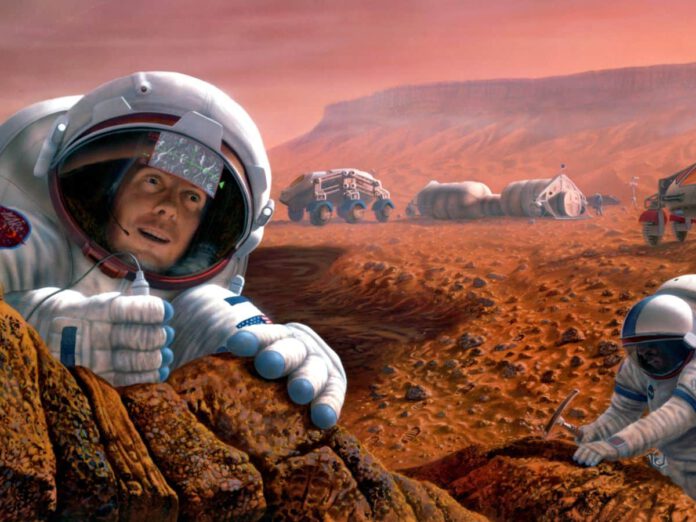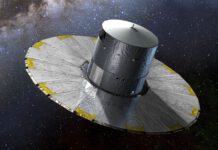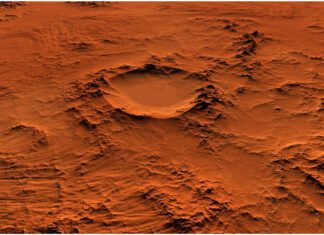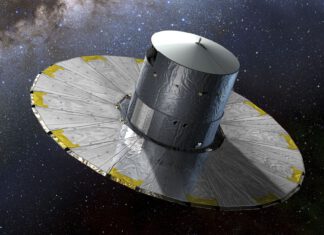
Bad News for Aspiring Mars Travelers: Risk of Kidney Damage
For those dreaming of a trip to Mars, there’s some bad news: aside from the tremendous cost and effort, it will likely take a toll on your kidneys. Researchers have reached this conclusion after conducting experiments on, among other subjects, mice.
These experiments reveal that prolonged space voyages change the structure and function of kidneys and can even lead to permanent kidney damage. This finding is published in the journal Nature Communications.
Health Risks of Space Missions
The health risks of long-term space missions have been known for quite some time. For example, research on astronauts who have spent time in the International Space Station (ISS) has shown that they may encounter bone mass loss, deteriorating or blurry vision, and the development of kidney stones.
Cosmic Radiation
Many of these issues appear to stem from exposure to cosmic radiation: high-energy radiation from space. On Earth, we are protected by the Earth’s magnetic field. However, the ISS, located in a low Earth orbit, is only partially protected by this magnetic field. As a result, astronauts in the ISS are exposed to much more cosmic radiation, leading to numerous health consequences.
This naturally raises the question of what will happen when we send humans deeper into space, beyond the protective reach of Earth’s magnetic field, such as to Mars. The answer to that question remains unclear. Only 24 people have ever been exposed to cosmic radiation without the protection of the Earth’s magnetic field, and those are the astronauts who traveled to the moon. Their missions were short, lasting only six to twelve days. Therefore, we don’t fully understand the impact of much longer missions—like a minimum 1.5-year trip to Mars—on organs like the kidneys. “We know that astronauts face increased health issues during relatively short missions,” says researcher Keith Siew. “What we don’t know is why these problems arise. We also don’t know the effects of longer space missions, such as those proposed to Mars.”
New Research
To gain more insights, scientists have set up new research focusing specifically on how long-term, distant space missions affect the kidneys. They studied data from humans and mice that participated in over 40 space missions, mostly to the ISS. They also looked at rats and mice that experienced simulated space missions. In seven of these simulations, the rodents were exposed to doses of cosmic radiation similar to what humans would face on a 1.5 or 2.5-year mission to Mars.
Changes in Kidney Tubules
The research shows that both human and animal kidneys change under space conditions. For example, the researchers observed that kidney tubules, responsible for maintaining calcium and salt balance, showed signs of shrinkage after less than a month in space.
The shrinkage of kidney tubules in space travelers appears to be mainly due to the lack of gravity and not so much due to cosmic radiation exposure. However, the researchers cannot entirely rule out that cosmic radiation might exacerbate or accelerate these gravity-induced changes in the kidneys. Further research is needed to clarify this.
Kidney Stones
The current study also provides more insight into why astronauts sometimes develop kidney stones. Previously, this was primarily linked to bone mass loss, leading to more calcium accumulating in the urine and increasing the risk of kidney stones. However, the new study suggests that space-induced changes in the kidneys also play a significant role in the formation of these ‘extraterrestrial’ kidney stones.
Permanent Damage
But kidney stones might not be the biggest issue Mars astronauts will face. Experiments with mice reveal that a 2.5-year exposure to cosmic radiation can result in permanent kidney damage, even causing the kidneys to stop functioning altogether.
Dialysis Risks
Now, 2.5 years in space might sound long, but considering the trip to Mars already takes about nine months each way—and assuming you’ll want to spend some time exploring and conducting research on Mars—you’ll be away for roughly 2.5 years. And it appears you’ll return in a very different health condition than when you left, warns Siew. “If we can’t find ways to protect the kidneys, I’d say that if an astronaut reaches Mars, they would likely need dialysis on the return trip. We know that kidneys show signs of radiation damage late. By the time this damage manifests, it could be too late to prevent kidney failure, which could be disastrous for the success of space missions.”
Though this news may seem bleak and suggest that Mars missions are out of reach for us, the researchers prefer not to draw that conclusion. On the contrary, they hope their study will increase the chances of a successful manned Mars mission. The likelihood of success rises when we identify and mitigate potential hurdles in advance. “Our study shows that when planning a space mission, kidney health is crucial,” says researcher Stephen Walsh. The challenge now is to find ways to protect the kidneys of Mars travelers. “We might develop technological or pharmaceutical solutions to make prolonged space travel possible.” If successful, even people who prefer or are forced to stay on Earth could benefit. “Medications developed for astronauts could also be useful on Earth,” explains Walsh. “For example, by making the kidneys of cancer patients more resilient to higher doses of radiation.”











